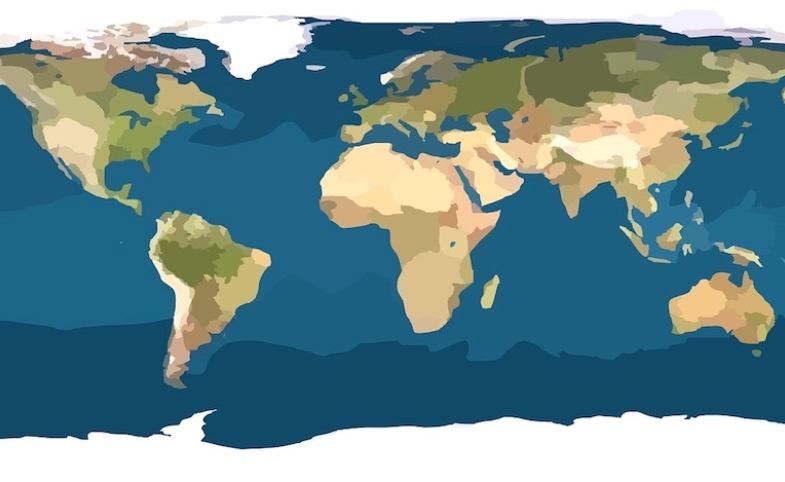Note from the CPD Blog Manager: Neil Simon is vice president of Portland-based Bighorn Communications. He has held public diplomacy leadership roles for the U.S. government and international organizations. He is currently...
KEEP READINGThe CPD Blog is intended to stimulate dialog among scholars and practitioners from around the world in the public diplomacy sphere. The opinions represented here are the authors' own and do not necessarily reflect CPD's views. For blogger guidelines, click here.

Geopolitical Illiteracy and Public Diplomacy
In an era of renewed ideological warfare, here’s a new strategic vulnerability to consider: geopolitical illiteracy.
Experts have long recognized that promotion of media literacy—educating the information consumer to navigate the global media space—is essential to counter destabilizing information distraction and manipulation effects.
But media literacy is not enough. We need to address an even more fundamental challenge—the absence of geopolitical literacy—or what every citizen needs to know about the strategic imperatives her country faces in the global context, and how these imperatives impact her, the members of her family, her community, her town, her region, her country. In this hyperconnected, hyper responsive world, we no longer have the luxury of information isolationism. National security begins at the level of individual knowledge about the global context.
To address the phenomenon of geopolitical illiteracy, we need to understand what lies behind it, beginning with Joseph Nye’s identification of “paradox of plenty”—the near infinite supply of data in the global information space that produces scarcity of attention rather than greater understanding. Because there is so much data to choose from, people gravitate to information that either confirms their exiting biases, appeals to their prejudices or bolsters their convictions. Information absorption dictated by instinct or emotion precludes the broad, inclusive understanding necessary for effective engagement in the global information space.
National security begins at the level of individual knowledge about the global context.
The narrowing scope of understanding is further exacerbated by the disaggregation of information. Geopolitical illiteracy thrives when news and information become detached from original context or story lines. These discontinuous chunks of data elements are then redistributed along individual economic, political and social profiles. Whether generated by social media platform algorithms, consumer purchase patterns or ideological inclinations, the resultant narratives are far removed from their origins. Fractured information results in fractured understanding.
Finally, in the digital age, the burden of source credibility assessment has shifted to individual information consumers and their immediate networks. To be geopolitically literate, information consumers must make an effort to identify sources, verify claims, and break out of fixed patterns of data consumption—something that is difficult to do in a disjointed information space. Credible interlocutors such as journalists and teachers also have a responsibility to place national policy decisions in a broader geostrategic context—to enable citizens to understand that global economic and security interdependencies impact domestic interests and priorities.
And that’s where effective public diplomacy programming comes in.
The first step is to find out what people know and don’t know about the world they live in—or what they presume and assume in place of knowing. Once research and polling organizations have identified knowledge gaps, public diplomacy initiatives can help to address them by facilitating access to a range of objective, language appropriate information and data sources. Public diplomacy programming can support media literacy and civic education programs that focus on the intersection between local, regional, national and global issues.

Source: The Washington Post
To address the disaggregation of information that fosters geopolitical illiteracy, public diplomacy initiatives can establish frameworks for local regional and national discussion and debate about global issues. Public diplomacy programs can also foster broad based, systematic public dialogues about shared global values and interests. Finally, public diplomacy partnerships can support academic and think tank research efforts to map and analyze the geopolitical ecosystem in accessible terms.
To promote responsible information consumption, public diplomacy initiatives can build individual capacities to assess sources and identify assumptions through media literacy programs; work with media outlets to develop collectively agreed upon standards for information accuracy and objectivity; develop networks of trusted interlocutors and messengers and identify a set of consistent information sources across the political spectrum; and use new technologies to build public trust and engagement in the international media space.
Geopolitical illiteracy is not limited to one nation or region. It represents a challenge to national security and prosperity for every country around the world. To combat the resurgence of illiberal spheres of influence—and to preserve confidence in democratic processes and principles—we need informed citizen participation in the global conversation about the values that matter—and the institutions that preserve them. Public diplomacy is the best tool we have to make it happen.
Visit CPD's Online Library
Explore CPD's vast online database featuring the latest books, articles, speeches and information on international organizations dedicated to public diplomacy.
POPULAR ARTICLES
-
January 29
-
January 20
-
January 28
-
January 2
-
January 8
Join the Conversation
Interested in contributing to the CPD Blog? We welcome your posts. Read our guidelines and find out how you can submit blogs and photo essays >.













